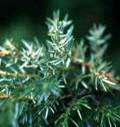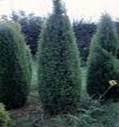| Kingdom | Plantae |
| Division | Pinophyta |
| Class | Pinopsida |
| Order | Pinales |
| Family | Cupressaceae |
| Genus | Juniperus |
| Species | J. communis |
| Binomial name | Juniperus communis |
Other Common Names:
The other common names for the herb Juniper communis are Juniper Berries,Juniper bush, Juniper bark, Common Juniper, Dwarf Juniper, Ground juniper,Hackmatack,Hapusha,Horse Savin,Kuei,Melmot Berry, mountain berry, Enrbro Gemeiner Wachholder, Geneva Gin Berry and Ginepro Gin Plant.
History
The oil of the berries which are of the most commercial importance is from the native shrub or the plant generally cultivated from Hungary. Although these valuable berries are produced from a native shrub, the berries of commerce are chiefly collected from plants cultivated in Hungary. The oil distilled on the Continent, principally in Hungary, is chiefly from freshly-picked berries. The Juniper shrub is a relatively low maintenance plant and is adaptable to most conditions. In order to produce berries you must plant both a female and a male Juniper plant. The berry is often a food source for animals including livestock. The Juniper berry is most often made into oil which contains the highest degree of uses.


The Juniper plant produces berries which is what is used most often including an ingredient in Gin. The berry of the Juniper takes about 2 years to fully ripen and a single bush will contain both ripened and unripe berries. The commercially used Juniper harvested for culinary purposes are the ripe berry which is blue when harvested; however, during the drying process the berry turns black.
Description

It grows on poor sites, tolerates full sun and wind and is pH adaptable. Generally common juniper is killed or seriously damaged by fire; the relatively long germination period and poor germination rates contribute to slow post fire reestablishment.
Range
This particular herb juniper covers a wide range of habitat in Europe, North Africa, North America, North Asia and southwestern Asia up to the Himalayas where it grows from southern coastal sites to more northerly moorland and mountainous regions.Juniperus communist L. grows in hilly to alpine regions up to an altitude of more than 3000 m.
Habitat
It prefers siliceous soils with limestone like on the Scotch mountains and on the limestone hills in the Lake district.This species grows on dry, open, rocky, wooded hillsides, sand terraces, maritime escarpments, and on exposed slopes and plateaus. It is found on dunes or dune heath in coastal areas, on isolated mountains, and may spread into fields and pastures. Establishment is more likely in open spaces between older shrubs and may be favored by grazing.
Cultivation
Juniper can be cultivated from seed sown in the fall where it takes a long time to germinate.Buthowever it is easier to propagate juniper from cuttings, which should be planted in spring or fall. Trim plants as needed to prevent them from becoming scraggly. The juniper berries are picked when they are completely ripe, usually towards the end of summer which is then spread out thinly on a tray and dry in the sun, or in an airy, shady location. The fruit berries are gathered when ripe in autumn. When the berries are dry and shriveled, store them in an airtight container. For maximum flavor, the dried berries are used within a year of harvesting. It performs well in an open sunny location.
Pests and Diseases
Juniperus communis L. is susceptible to juniper twig blight, Phytophthora root rot, cedar-apple type rusts bagworms, aphids, and scale, and to fungus diseases such as rust and Phomopsis blight. Common pests are the Juniper Webworm, the Bagworm, the Spruce Spider Mite and the Juniper Scale .Several juniper cultivars are highly susceptible to lesion nematode.
Parts Used

Mostly the ripe and dried berries and leaves of the juniper are used for its medicinal and commercial use.
Medicinal Applications
• Juniper is used as a remedy for diuretic, anti-microbial, carminative, anti-rheumatic, tonic, antiseptic and abdomen complaints.
• The berries are good for coughs, shortness of breath, consumption, and pains in the belly, rupture, cramps, convulsions and speedy delivery to pregnant women.
• It is employed in the manufacture of perfumes and liqueurs, forming an important constituent in Chartreuse.
• They strengthen the brain, fortify the sight by strengthening the nerves, are good for agues, gout and sciatica, and strengthen the limbs.
• It is also a speedy remedy for scurvy, haemorrhoids and kills worms in children.
• They also break the stone, procure appetite and are good for palsies and falling-sickness.
• The fruit is readily eaten by most animals, especially sheep, and is said to prevent and cure dropsy in the latter.
• They are also used in chest complaints and in leucorrhoea, blenorrhoea, scrofula, etc.
• Juniper Berries make an excellent antiseptic in conditions such as cystitis.
• The berries are also said to have a stimulating effect on the appetite; this may account for their incorporation as a flavoring agent in such dishes as sauerkraut.
• Juniper is helpful for chronic arthritis, gout, and rheumatic conditions.
• Juniper also stimulates menstruation and increases menstrual flow.
• It is also used in viral infection.
• The oil is carminative and one or two drops can be taken on a lump of sugar for indigestion and flatulence.
• A homeopathic medicine made from juniperis communis is available.
• Oil of Juniper is given as a diuretic, stomachic, and carminative in indigestion, flatulence, and diseases of the kidney and bladder.
• The oil mixed with lard is also used in veterinary practice as an application to exposed wounds and prevents irritation from flies.
• Spirit of Juniper has properties resembling Oil of Turpentine: it is employed as a stimulating diuretic in cardiac and hepatic dropsy.
• The oil is a local stimulant.
Commercial Applications
• The roasted seed is a coffee substitute.
• The wood is used for different purposes like fuel, firewood, fenceposts, cement and particle boards, wall board, cordwood housing, parquet, paper, chemical derivatives, activated carbon and small wood items.
• Juniperus communis L. may be also used as insect repellent and in cosmetic industry.
• Crushed juniper berries, either fresh or dried, are excellent in marinades and conserves to serve with cold meats.
• Their aromatic, resinous flavor adds gusto to wild game, beef, pork, goose, pickled fish, casseroles, stuffing, pate, gravies, and hearty vegetable dishes such as sauerkraut.
• Grind dried berries in a pepper mill and use as an alternative to pepper.
• Juniper berries are used commercially to flavor gin and various liqueurs.
• The berries and roots are used to make brown and purple dyes.


Juniper was burned as incense and was one of the many aromatic shrubs thought to ward off evil spirits. It is believed to foster Good Luck in Sexual Relations. It was used in Tibet for both religious and medicinal purposes. When carried or burned, Juniper helps the psychic powers and breaks hexes and curses, and drives off snakes. It is said that if the wine or vinegar soaked berries is added to ones bath and then sprinkle the used bath water and berries in yard, they will meet someone who will become close to them.
It is used as a protective herb and also guards against theft and was used by European Witches. Juniper hung at the door protects against evil forces and persons, and it is burned in exorcism rites. A sprig of the plant protects its wearer from accidents and attacks by wild animals. It also guards against ghosts and sickness. Juniper is added to love mixtures, and the berries are carried to increase male potency. The women use this as a vaginal douche, which has the popular name "Hot Mama Douche" and is claimed to make a man Eager to Love.